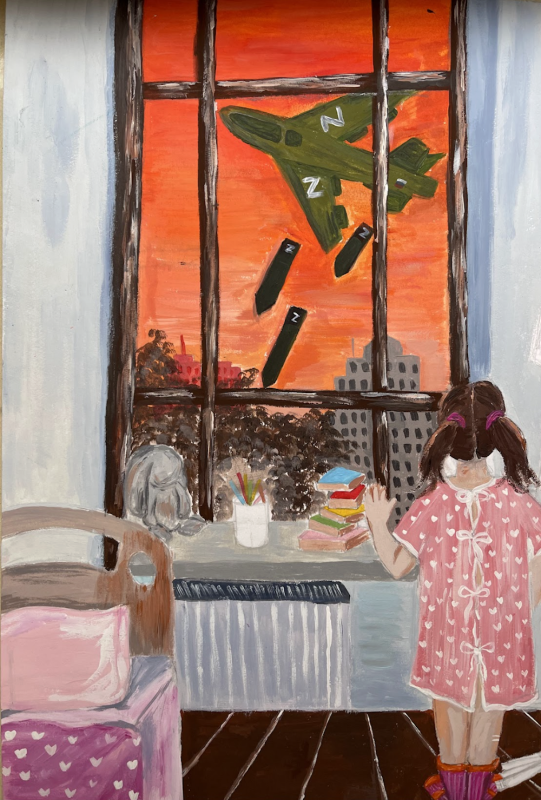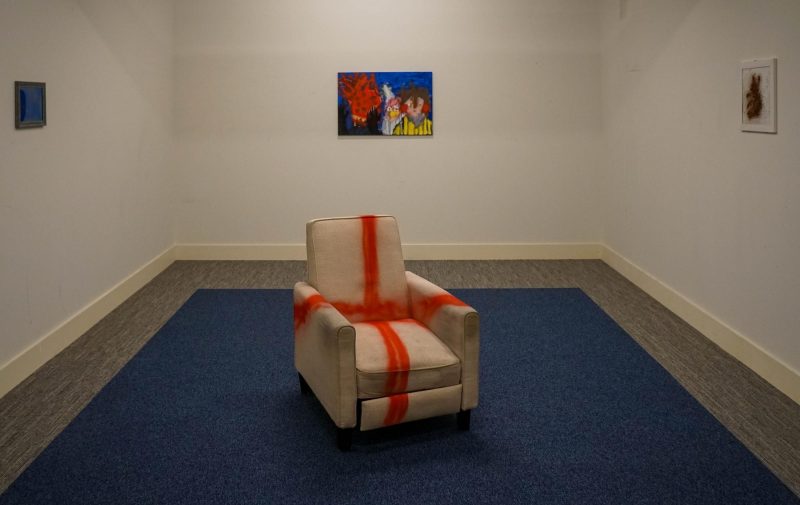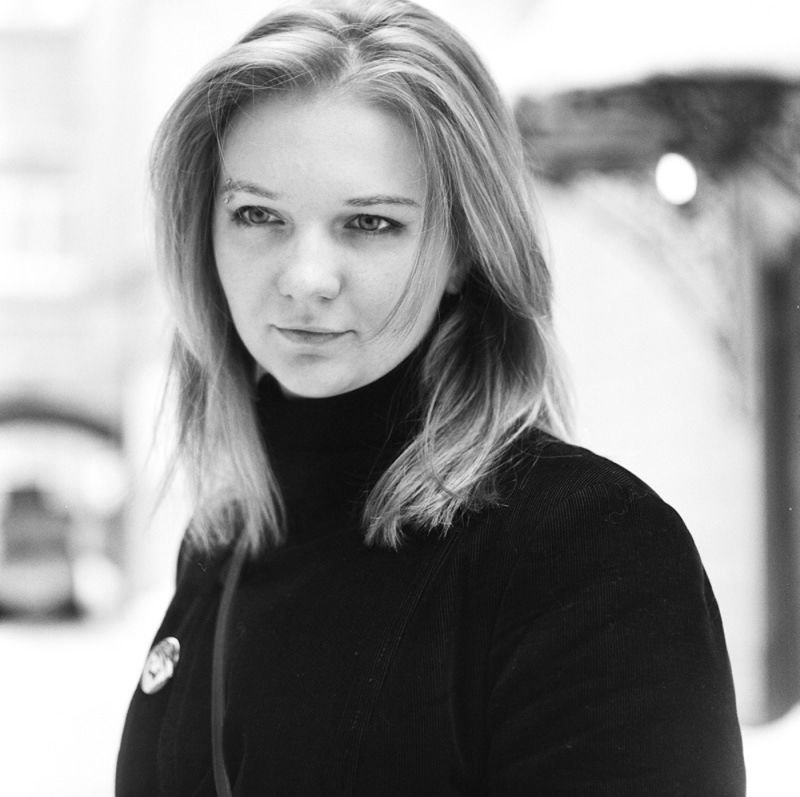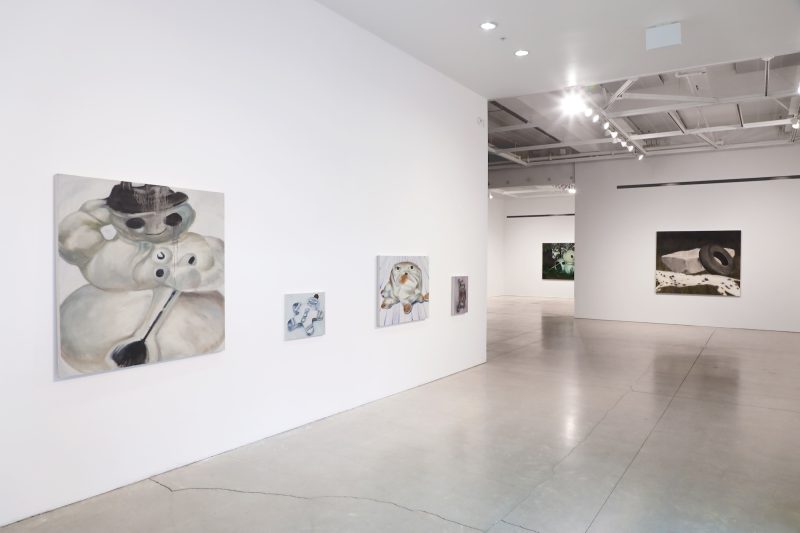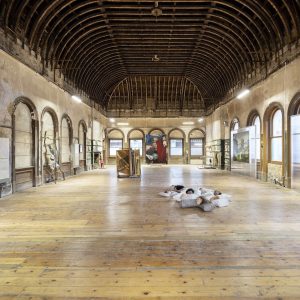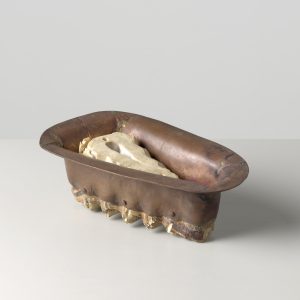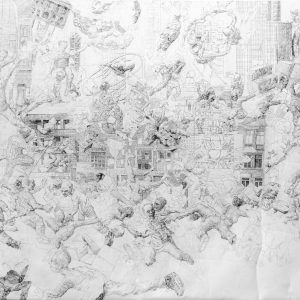Kathy Murillo opened their solo exhibition OWN JUSTICE at ST.ART Gallery’s new space in Soho during London Gallery Weekend.
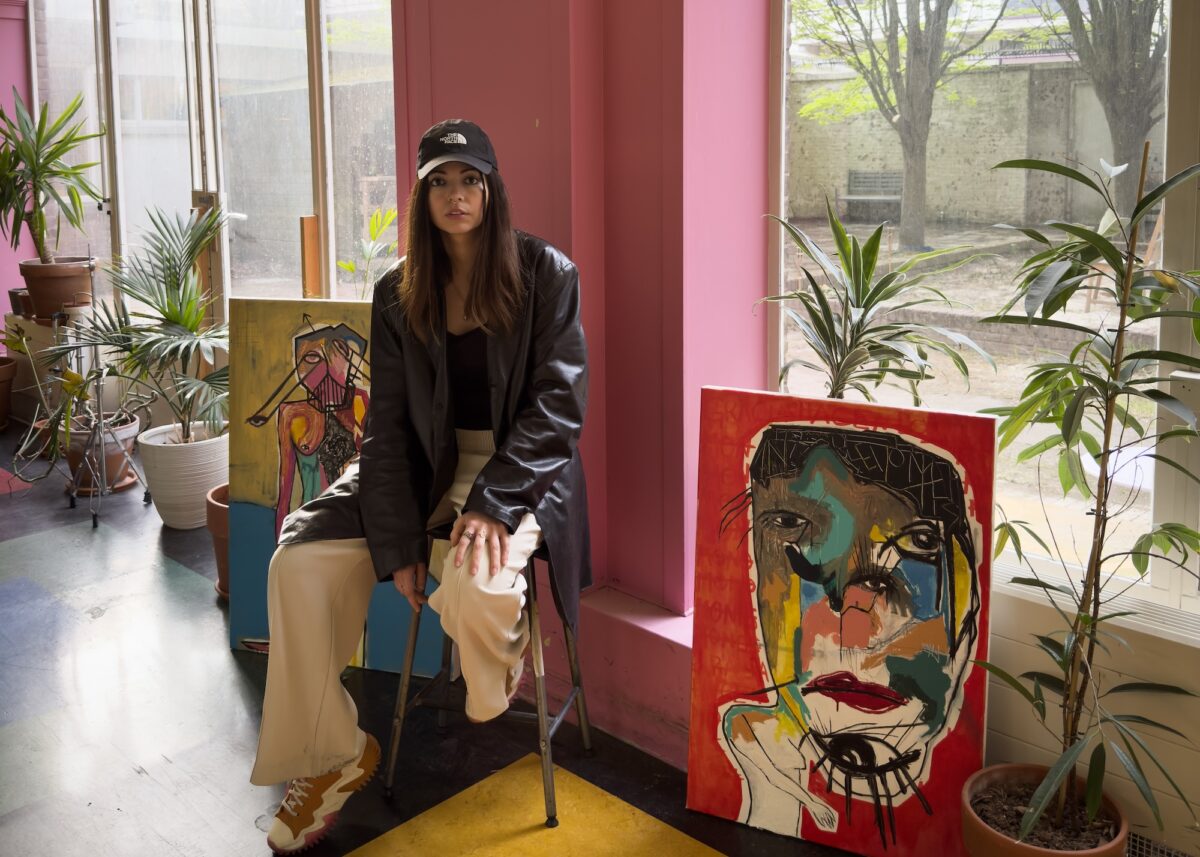
OWN JUSTICE highlights the voices of intergenerational women and their journeys of finding inspiration and solace in shared experiences of sisterhood and solidarity. Working across painting, sculpture, and mixed media, Kathy Murillo challenges the conventional notions of belonging by foregrounding vulnerability, drawing from their identity as a queer, feminist Dutch-Latinx artist living in the Hague, Netherlands.
Jessica Wan: Could you tell us about your show? What is the starting point for this new body of work?
Kathy Murillo: My upcoming show focuses on empowerment, inspired by my experiences and those of women around me. It also delves into my ancestral womanhood, exploring how struggles and resistance could shape one’s identity. Initially, my work centred on pain due to my traumas, but over time, I’ve transformed that into a form of empowerment for myself and others. This exhibition is a reflection of that personal journey.
I began with a critique of how the justice system often fails survivors, sacrificing their well-being for bureaucratic convenience. The work A Piece of You? And Now What? (2023) brings attention to the justice system, especially in handling sexual abuse cases. During the pandemic, I tried to report an assault but was initially dismissed by the police. Despite persisting, the process was disheartening and ultimately dismissive. This experience drained me and motivated me to create an artwork that highlights the flaws in the justice system. It was both painful and healing to reenact my interaction with the police. The name of the artwork shown on ST.ART Gallery is Inspired by a booklet given to sexual assault survivors, A Piece of You? And Now What? (2023) aims to raise awareness and question what comes next.
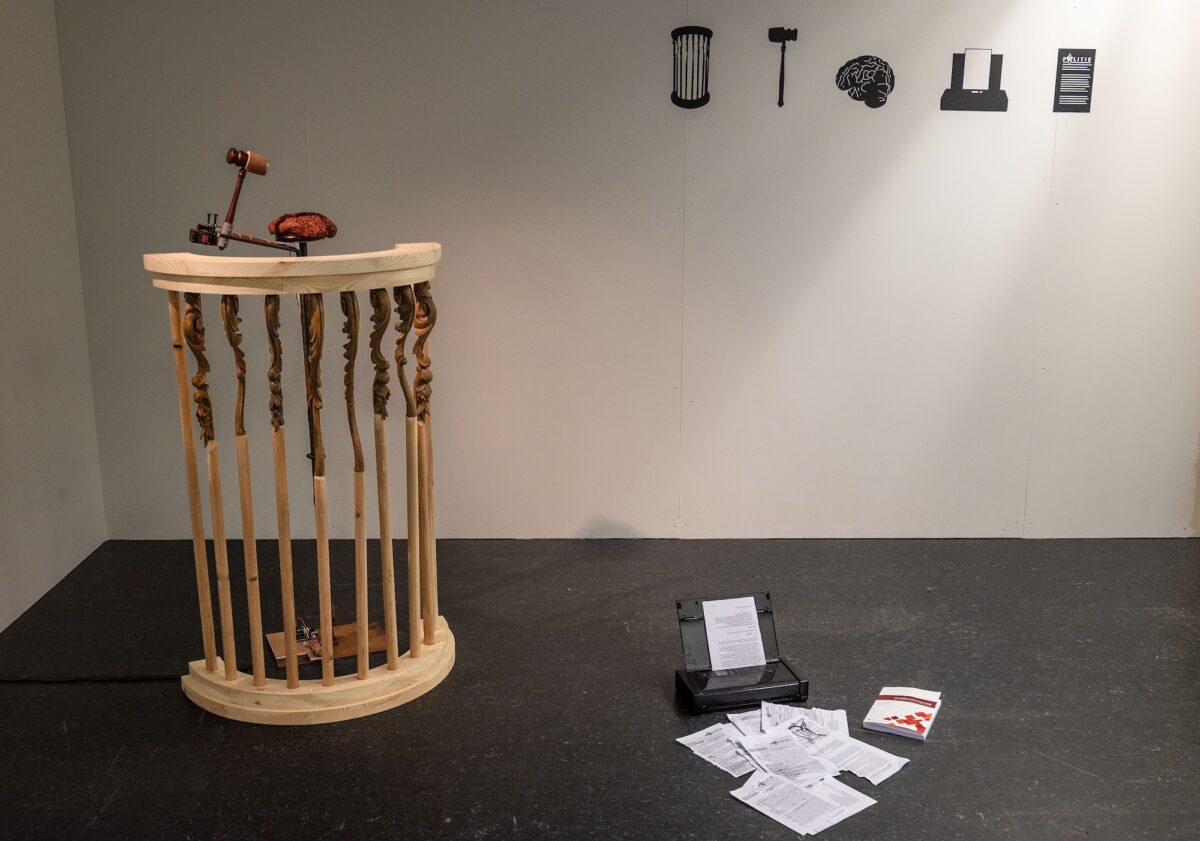
JW: The empowerment of ancestral womanhood and collective resilience is a thread that weaves through your practice. How does your personal journey support the creation of new narratives in your work?
KM: My life has been shaped by the strong women in my family. My dad left when I was three, so I grew up with my grandma, aunt, and mother who were stand-ins for male figures, all of whom faced and overcame many struggles. This experience along with the challenges I faced when I moved to the Netherlands has deeply influenced how I perceive the world. I filter these personal stories and hardships through the lens of collective resilience to create narratives of survival and triumph.
The installation Fluid Chair (2023) holds deep personal significance as it symbolises my journey—returning from Venezuela to Holland, it mirrors a reassembly of my identity. Like the chair’s transformation, people question my origins. The reconstructed chair proposes the idea that our identity and sense of belonging are dynamic, and capable of transformation and evolution. Understanding that
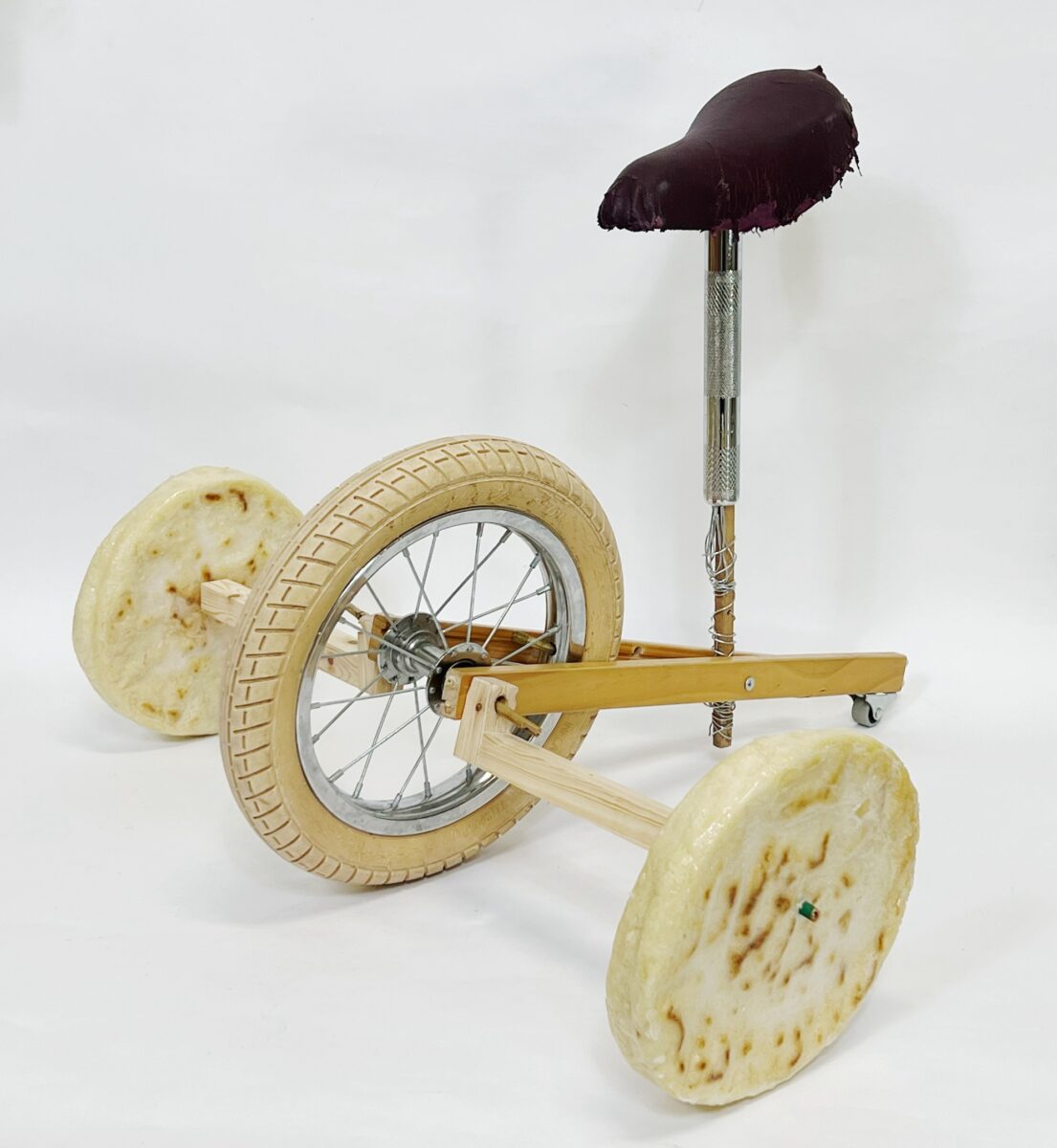
JW: I appreciate you sharing this so openly with me. As you mentioned, traumatic and oppressive experiences are challenging to deal with. Do you have any advice for coping with difficult moments and transforming them into a more empowering force?
KM: For me, it’s very personal. We need to feel and survive in our own ways. From a young age, I learnt that life was very unjust, and I’ve always searched for justice, not only for myself but also for those around me. This drive led me to where I am now. When faced with challenging experiences, I don’t ask why it’s happening to me, but rather, I wonder if others are going through similar situations. This shift in perspective helps me feel less alone and empowers me to address issues on a collective scale.
It’s also important to be aware of your feelings and give yourself time to heal. Therapy has been crucial for me, as well as sharing my experiences with supportive people. Taking the time you need and listening to your body is vital, rather than forcing yourself to act before you’re ready.
JW: We live in a society that emphasises productivity and often discourages emotional expression. Is there a way to grow at a slower pace and embrace vulnerability in our everyday lives?
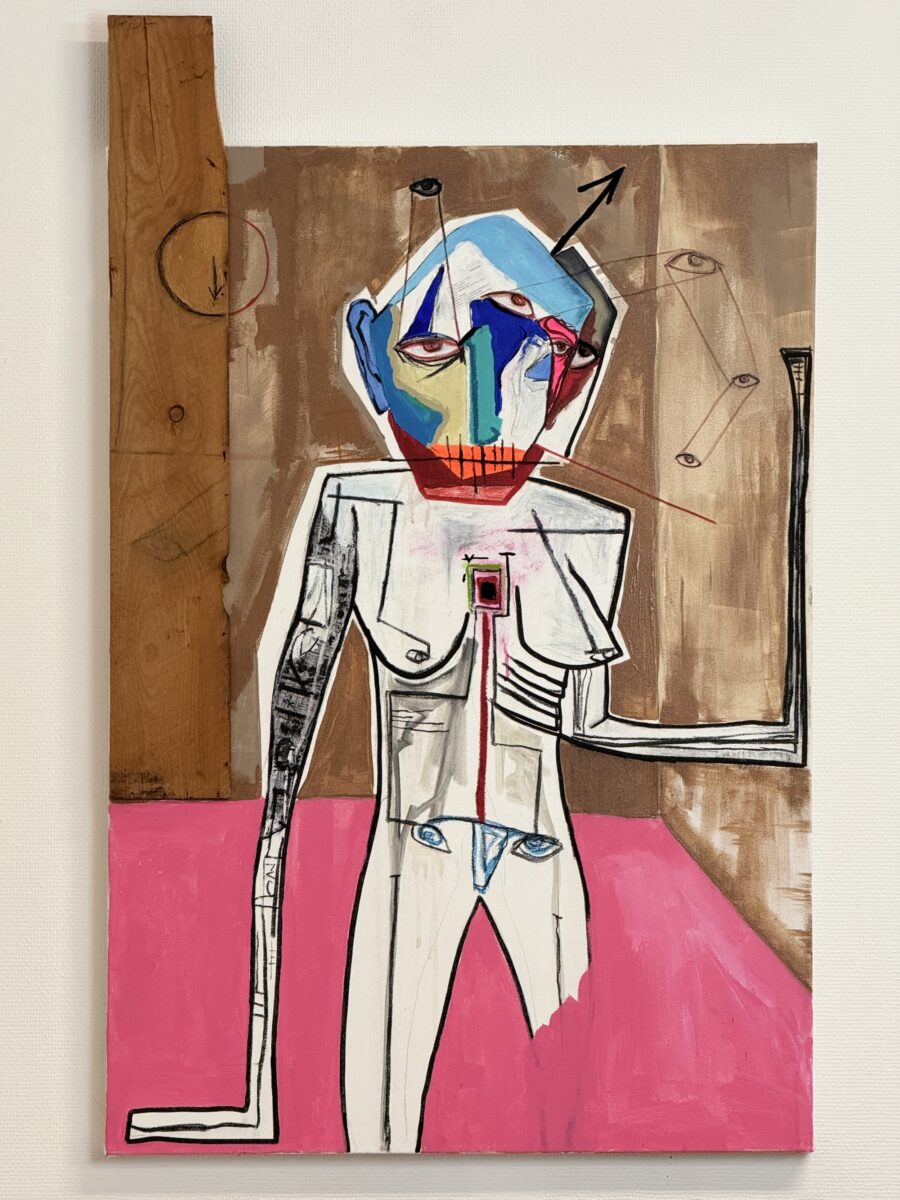
KM: I resonate with what you were saying, and time is something I often reflect on myself. Productivity is heavily influenced by our adherence to clock time. To embrace vulnerability and connect with ourselves, we need to challenge this notion of time. By taking moments to centre ourselves and prioritise our well-being over productivity, we can foster a deeper understanding of ourselves and our needs. Time, as we know it, is often driven by economic demands and lacks consideration for our holistic health. To truly become more vulnerable and self-aware, we must deconstruct this rigid concept of time.
One piece in my collection, Tiempo sinking (2024) explores the struggle against clock time, reflecting on the cyclical nature of womanhood. In my studio, I eschew clocks, allowing spiritual time to guide my creative process. Our fixation on productivity-driven schedules overlooks individual journeys. Therefore, it’s essential to align with our spiritual time rather than being dictated by the clock.
JW: I am curious to know, what are your sources of inspiration and refuge?
KM: I draw inspiration from various sources for my artworks, each telling different stories. For example, A Piece of you? And Now What? (2023) was influenced by Sara Ahmed’s insights on systemic issues, which gave me strength. I also find refuge in simple pleasures, like watching cat videos, which help me recover from intense research on trauma. The world around me, even random interactions or nature, continuously inspires me. I feel a constant connection and collaboration with everyone and everything, which fuels my creative process.
For example, the work Anti (2023) explores the entanglement of colonial past and present to reflect on the suffering caused by exploitation. Today, we see ongoing suffering in places like Congo, Sudan, Palestine, and others. I want to question and challenge the legacy of colonialism through this work and that our shared futures should be grounded in collaboration, not invasion.
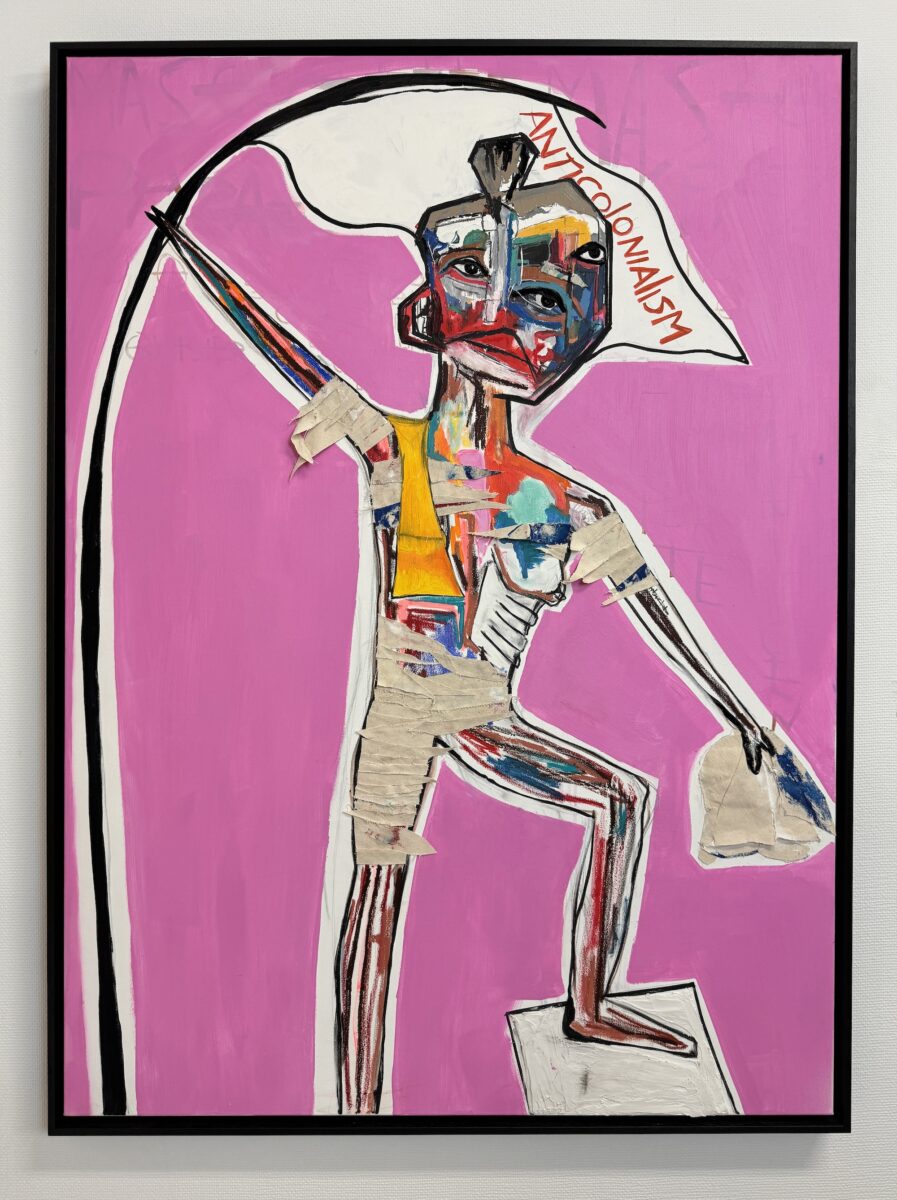
JW: How are you finding London as a city, and how has your collaboration with ST.ART Gallery been?
KM: Own Justice is my first solo show ever and having it in London makes it even more meaningful. I have lived in London for six months and that was an amazing experience. I love the city’s cultural diversity which makes it feels like home to me.
I am grateful for the collaboration with ST.ART Gallery. It was meant to be. When Charlie called me saying he was opening a gallery and wanted me to be the first artist to have a solo show there. I was ecstatic. I first met Charlie at Central Saint Martins, where we were working with other classmates and a curator to set up exhibitions. Later, Charlie was curating a show and saw a huge painting I made in the studio. He asked me to be in this exhibition, which was a wonderful surprise after only being in London for a month at the time. It’s similar to what’s happening now — he saw my work and our collaboration happened organically. I hope the audience connects with my work, seeing themselves reflected in it. I’m eager to learn their thoughts and hope they leave with new questions about the Dutch justice system and possibly prompting them to question their own.
Kathy Murillo, OWN JUSTICE, 31st May – 14th June 2024, ST.ART Gallery, 36 Eastcastle Street, London
About
Kathy Murillo is a multidisciplinary artist who works across painting, collage, works on paper, video, sculpture, and performance to explore notions of identity, belonging, and societal constructs through a lens of queer feminism and intersectionality. Inspired by personal encounters with the Dutch legal system, Murillo delves into the complexities of justice, particularly in cases of sexual aggression. Symbolic imagery such as the altar of justice and the relentless swing of the gavel sheds light on systemic failures that perpetuate such crimes, challenging the notion of justice at the expense of survivors. Drawing from a diverse array of mediums, including and interventionist works, Murillo continually challenges and redefines their artistic expression. @kmurillo.art
ST.ART Gallery, established in 2021, aims to provide essential visibility for exceptional emerging international artists and demystify the London art scene by connecting people through contemporary art. Following a series of successful pop-up exhibitions, ST.ART is now making a significant leap into a permanent space. Recognising the deep-rooted elitism in the art world, ST.ART emphasises active engagement and inclusivity by encouraging visitors to engage in meaningful dialogue and inquiry, fostering a deeper, more intimate, and more personal connection with art.
ST.ART and Kathy. We met whilst studying Fine Art at CSM and I was instantly drawn to their unique ability to depict and reappropriate pain, realising empowering imagery and experiences. I am thrilled to present Kathy’s significant new body of work to a larger audience and begin this new chapter.
Charlie Pannell, Founder of ST.ART Gallery
